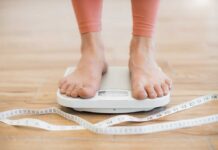
Your age and family history can determine if you are likely to suffer a stroke, but certain health conditions can also increase your risk of stroke.
This article will outline treatments and lifestyle changes to help mitigate your stroke risk.
Control high blood pressure
Uncontrolled high blood pressure has been found to double or even quadruple the likelihood of stroke in both men and women. High blood pressure is the top factor contributing to stroke, and managing your blood pressure is the most important thing you can do to prevent stroke.
Maintain a healthy weight
Stroke risks are increased by obesity and the health complications that come with it (such as high blood pressure and diabetes). Losing just a few extra pounds can reduce your risk.
Get more exercise
Exercise can help you lose weight and lower your blood pressure. However, staying active is important for your overall health and vital in reducing your risk of stroke even if you are not overweight and do not have high blood pressure.
Drink in moderation
Having one alcoholic drink each day can decrease your risk for stroke. But if you have more than two drinks per day, this will greatly increase your risk for stroke. One drink is considered 5 ounces of wine, 12 ounces of beer, or 1.5 ounces of hard liquor. Abstain from alcohol or stick to a drink a day. If you do drink, keep in mind that red wine contains resveratrol, which can protect your heart and brain.
Treat atrial fibrillation
Atrial fibrillation causes irregular heartbeat and blood clots in your heart. Those blood clots can move to your brain and cause a stroke. It is said that atrial fibrillation increases risk by five times.
Manage diabetes
Uncontrolled elevated blood sugar damages blood vessels and makes it more likely for blood clots to form. As with heart blood clots, blood clots anywhere in your body can migrate to your brain and cause a stroke.
Stop smoking
Smoking speeds up blood clot formation by thickening your blood and increasing the amount of plaque buildup in your arteries. Like other lifestyle changes such as eating a healthy diet and getting regular exercise, quitting smoking will significantly reduce your chances of stroke.
Implementing healthier lifestyle habits and treating conditions that increase the risk of stroke are the best ways to reduce your risk of stroke.


















